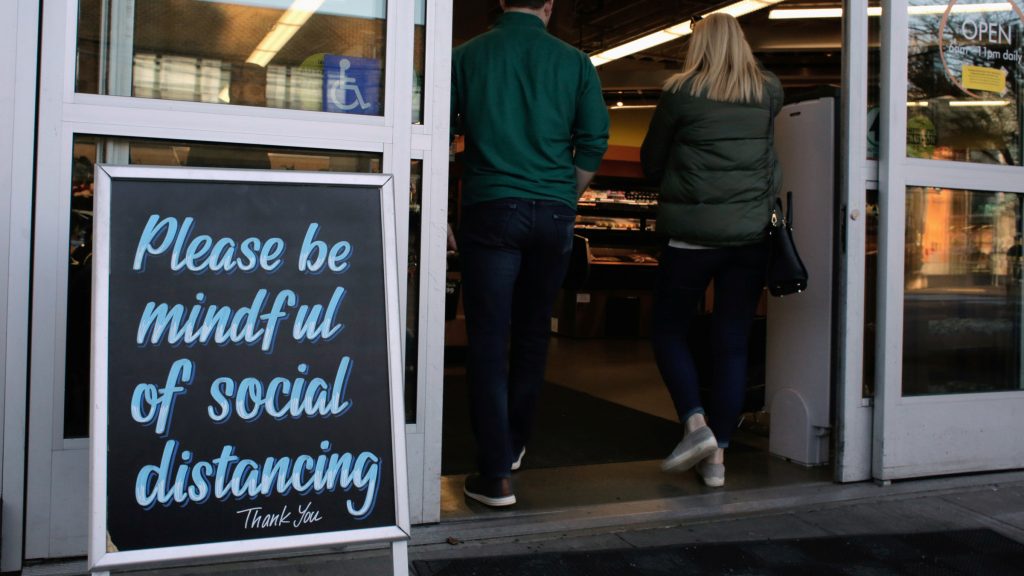Social distancing and sheltering in place doesn't have to mean total isolation for people of faith accustomed to advocating for peace and justice concerns.
Prayer, keeping in touch with friends and colleagues through online technology and digital communication, and creativity in continuing to address social issues are among the tips offered by longtime advocacy groups as people hunker down to reduce the spread of the coronavirus.
It is important to stay connected through prayer and by reaching out to each other and people facing uncertainty and upheaval caused by the coronavirus pandemic alone, said Johnny Zokovitch, executive director of Pax Christi USA.
The Catholic peace organization plans to post a prayer on its website -- paxchristiusa.org -- that anyone can use to reflect on, knowing that people everywhere are offering the same words to God.
"It's these times that bring people together," he told Catholic News Service March 18.
In a message emailed to members and supporters March 17, Zokovitch encouraged people "to keep being the 'peace of Christ' in the world as you are able in your own communities."
"Pax Christ USA and other faith-based groups are well-suited for this moment because it's our faith that reminds us who we are even though all the evidence is pointing to a sense of desperation and despair in the world," Zokovitch said.
Stephen Schneck, executive director of the Franciscan Action Network, said the organization is taking advantage of new technologies to help people reduce the sense of isolation they may feel, allowing them to stay in touch with family, friends and fellow advocates.
"For the social justice advocacy groups, we are probably more attuned to issues like solidarity on one side and the problem of social isolation on the other side. It's in our DNA," Schneck explained.
That means the advocacy work on social concerns such as homelessness, lack of health care, hunger and poverty remains vitally important to address even as government at all levels focuses on limiting the spread of the coronavirus, he added.
For Schneck, such work must be rooted in faith. He also said he expects that people "are feeling the importance of their faith in ways they might not have been two months ago."
The Franciscan Action Network offered on its website -- franciscanaction.org -- several ideas for people to connect with their Catholic faith, including participating in Mass, prayer and Scripture study online. The website also lists ideas for advocacy in the time of the coronavirus.
On the website of JustFaith Ministries, Kristin Dollar, the organization's program director, offered six tips for "spiritual and emotional preparedness" for justice advocates in response to the coronavirus.
Prayer and meditation topped the list.
Reaching out to others, especially those who live alone, can stem from prayer, Dollar told CNS.
"Faith-based organizations are good at caring for people and that's what people need right now. We have such an opportunity right now to be leaders in our communities, both in our organizations and outside of it. People need community in the midst of isolation," she said.
Dollar's other suggestions -- posted at justfaith.org -- include how churchgoers can help their parish or congregation implement preparedness measures to protect members and vulnerable people in the wider community; ideas for meeting friends virtually; exercising; practicing empathy and compassion for others; and not pressing "pause on your justice work."
"There are a lot of things that can come of out of this that we don't know," she said. "One of the things that has the potential to happen is that we emerge braver, stronger and more compassionate people particularly because we have spent some time in solitude."

